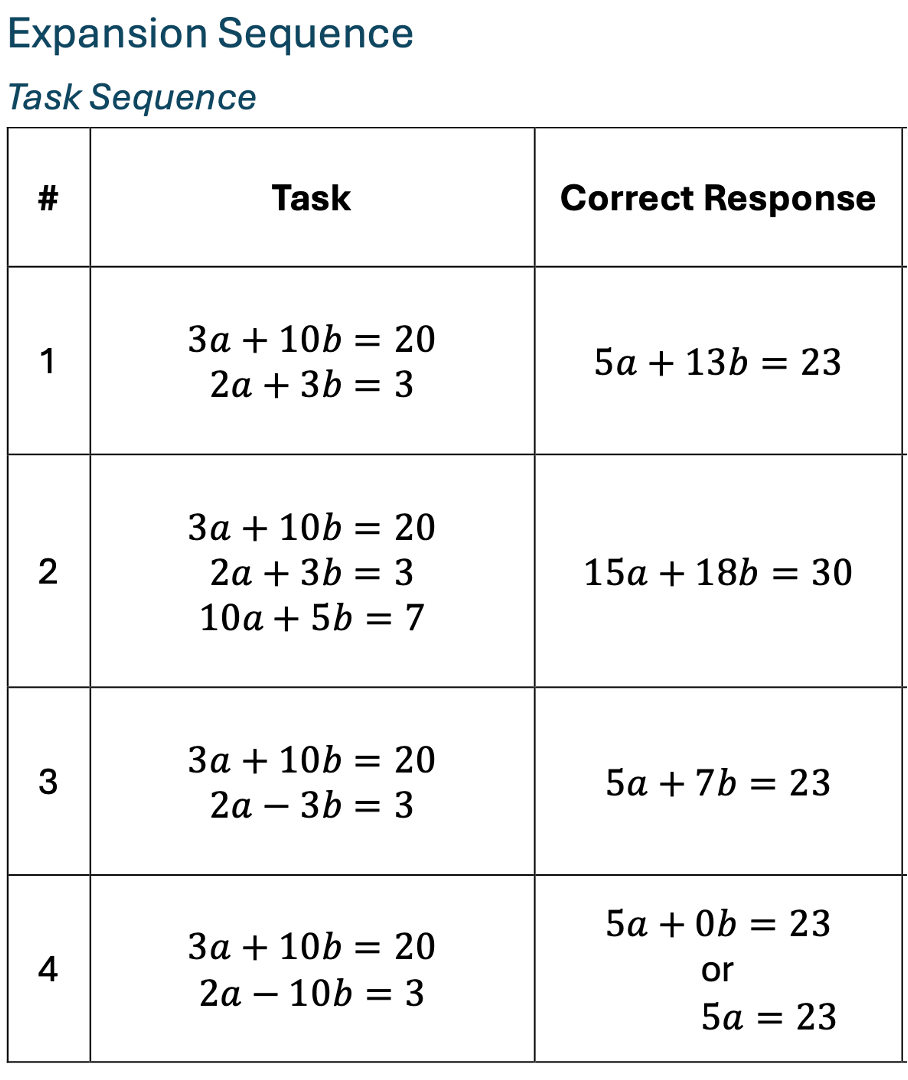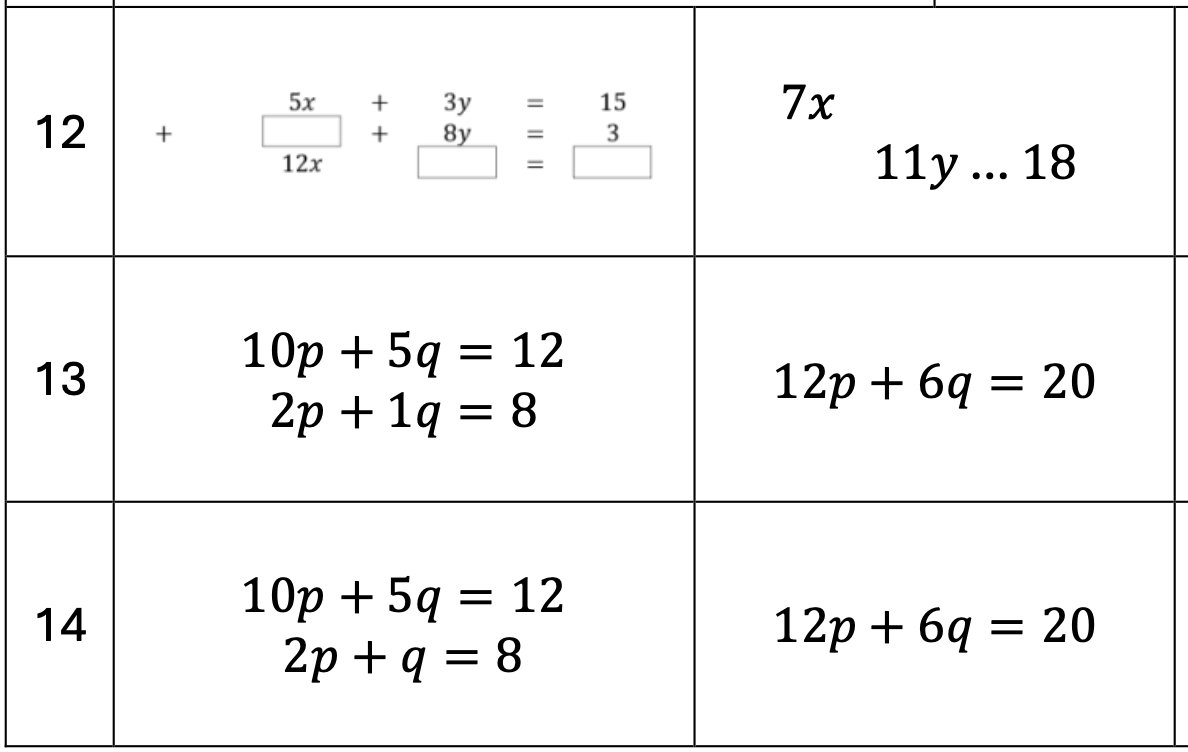A Teacher Shares His Transformative Experience of Unstoppable Learning
ResearchED by the Beach (Bournemouth)
Podcast is AI generated.
On Saturday (7th June) Lee Wheeler and I took to the beach to speak at ResearchED Bournemouth. Some of you may be familiar with Lee from Craig Barton’s podcasts (linked below.)
Lee prepared what he wanted to say in advance, and honestly, despite many, many hours working together, it still moved us to hear him describe his experience in this way.
had this to say about it:So, we felt it necessary to push back the planned post so that we could share his words with you. It’s a little longer than usual, but if you’re wondering what all the fuss is about, it’s worth the read.
Later this week, the promised look at how Unstoppable Learning aligns with ‘I do / We do.’ Next week, the concrete example Sianna Clarke shared with us of how she applied the transformation sequence to teaching integration. Both articles will have additional content for our paid supporters.
Now, without further ado, here are Lee’s prepared words for the ResearchED conference.
Introduction
Good afternoon, ladies and gentlemen, it is a pleasure to speak to you here today.
I remember attending my first rED event as an unqualified teacher. I remember being in awe of the inspirational and creative speakers I got to see. It is a privilege to now have that opportunity to speak myself.
So, who am I? Where did I start? And what have my experiences been of Unstoppable Learning over the past year?
My name is Lee Wheeler, I’ve been teaching for coming up to 8 years and I’m the lead practitioner for maths at Moreton School in Wolverhampton. Moreton is part of the amethyst academies trust and serves an underprivileged community in the North East of the City.
I began my journey with unstoppable Learning about this time last year when my head of Department and I listened to a podcast with Kris and Craig Barton.
At that point, most people would have considered me a good teacher.
I consistently got 70-80% success rates in my class, students were generally happy and motivated and GCSE results were always positive.
In terms of my engagement with teaching literature, I was incredibly sceptical as so little is based on replicable research. I informed my practice with a small number of research papers that I was convinced were based on meaningful evidence.
Our Department in Crisis
So that’s where I was but what about my department?
As I’m sure is all too familiar we had faced a crisis of recruitment and retention over the past few years. My department was set to have 4 of 9 teachers leave and be replaced by significantly less experienced teachers, including 2 more ECTs.
I knew we needed to develop a more systematic approach to our departmental pedagogy and CPD programme.
I started implementing Unstoppable Learning in my own class just over 1 year ago today with the aim of departmental implementation throughout 2025-2026.
The results I saw in my own classroom were staggering.
In the words of one of our ECTs:
“The results were significant, literally from the very first lesson.”
100% Success is Possible
Firstly, I found the bar I had set myself of around 70-80% success – which I thought was me having high expectations – was unambitious.
It was possible for every child to be successful.
Success Means More Than ‘Right Answers’
It was more than just correct answers though; pupils began to transcend what they had previously been capable of.
Taylor, for example, a gifted but somewhat disengaged young lady started asking deeper questions – her eyes were alight with curiosity and wonder again.
She said:
“I haven’t enjoyed maths like this since I was in year 2.”
Another young lady, Ellie, was frequently part of the 20% of the class who were unsuccessful. She was bright but became cognitively overloaded quite quickly in traditional maths lessons. Once topics were atomised, she started finding it easier to follow and understand; her entire demeanour in class changed and she started looking forward to maths lessons rather than dreading them.
This has compounded over time – as she got more answers right, she became even more engaged and has had even more success.
Overall, my pupils discovered a level of confidence and engagement which I hadn’t previously thought possible.
Reigniting Professional Pride
The final and generally less talked about problem, that I didn’t know existed, was that I had become to some extent bored of teaching and less engaged as a practitioner.
This approach rejuvenated my passion.
I was discussing the deep philosophy of maths with my colleagues in meetings – comparing methods, atoms and example sequences, questioning the nature of mathematical concepts and strategic discussions about our experiences.
In the words of another colleague:
“I felt like a professional again – like I had a set of skills that someone who is not a maths teacher wouldn’t have.”
I feel that that sense of expertise and pride is not as present as I’d hope in our profession but it can be
But Does it Work for All Pupils?
In practice, one of the questions teachers consistently ask is “does this really work for all pupils?”
The short answer is yes.
The long answer is that it will always be a different experience teaching different attainment groups but they can all be 100% successful.
Higher Sets - ‘The Idyllic Classroom’
So, what is the experience like with higher attaining groups?
Unstoppable Learning gives the structure to achieve the idyllic classroom, where pupils are able to explore the deepest and richest ideas our subject has to offer.
Two features are particularly relevant for higher attaining groups in my mind:
(1) Designing sequences of non-examples and examples to introduce key categorical concepts gives you the opportunity to really engage with the concept yourself.
Can a bearing be written as a fraction? Is 0 an example of a square number?
The number and richness of examples pupils encounter through the instruction and testing sequences gives them a well-rounded view of the concept which is far beyond a stipulative definition.
(2) Secondly, after Instruction and testing for any given atom, there is the opportunity for expansion. This is where you get to be really philosophically creative and I’ve found higher attaining groups find this really exciting.
You will deliver examples or questions which push the boundary of the concept or process but strategically in a way that maximises their possibility of success.
In doing so you give the pupils a much deeper experience of education whilst still maintaining their feeling of success.
Lower Sets - ‘It Feels So Easy’
But what about lower sets? Can they access this level of depth?
My experience of teaching lower attaining groups has been transformed. I often found it frustrating to teach lower sets as I was not as aware as I am now of my own expertise induced blindness.
Now, teaching these groups is an interesting and rewarding challenge which I have the tools to successfully navigate.
Again, two features are particularly relevant in my mind:
(1) First, the penny promise. Having the confidence as a teacher to promise pupils they will be successful if they attend to what you say is so powerful.
It is profoundly rewarding as a teacher to see pupils begin to put their faith back into the education system as they feel you take responsibility for their learning and also their mistakes.
For many children that is all they need to reboot their engagement in education. Faith in education only compounds over time – higher engagement leads to more success which leads to higher engagement.
(2) The second feature which feels most relevant is avoiding cognitive overload.
Unstoppable Learning uses atomisation to approach teaching. Breaking topics into their smallest mathematically meaningful bits then strategically and purposefully creating sequences of examples that build on each other in a way you are sure pupils will follow.
This all leads to a high probability of success for all pupils as they are less likely to become overloaded and more thought has gone into ensuring they will not get lost on the way.
In the words of one of my year 8 set 6 class:
“It feels so easy”
Concrete Example
Now this is all well and good but it’s always important to see some concrete examples of what I mean.
Firstly, a lesson I learned about expansion sequences over this year is to be more creative. A lot of the time my initial instinct was to expand an atom by increasing the difficulty of the arithmetic or to introduce other topics like fractions of standard form.
This is sometimes the correct thing to do but there are often richer and more interesting ways of expanding a topic that give pupils a better experience.
Have a look at the following example tasks, shared by Kris and Unstoppable Learning:
Pupils found this much more rewarding and got a much richer education than if I had simply used decimal coefficients in the equations, for example.
Planning Lessons
Another important consideration is planning. Atomisation lends itself to some very detailed but honest planning. I say honest because usually when a curriculum breaks larger concepts down into smaller ones, and then into lesson topics or titles, a lot of the time these are not made equally.
One lesson will include a cognitive routine, which itself is made up of seven atoms, while another may include two whole routines, or only two atoms; and, often, little consideration is given to how much information pupils are expected to process per lesson.
Unstoppable Learning and atomisation give a structure to very clearly see how many and what types of things pupils are expected to learn. This allowed me to plan more effectively and, as I will talk about a little later, use retrieval practice more strategically.
How Do I Know It’s Working?
For me, whenever I have listened to people speak about education my first question is always how can you be sure it’s working?
Now, unfortunately, I can’t give you any GCSE results as we don’t have them yet for this year but I can explain my own experience and what our internal data indicates.
First of all, our mock exam results show a significant improvement.
From last year having 53% grade 4-9 in GCSE 2024 to just over 60% in this year’s mock exams, we are looking at a likely increase of over 10 percentage points in the actual exams.
Secondly, we use a robust formative assessment system. The interesting part of this is the comparison between teachers who have and have not engaged as much with the CPD on atomisation and Unstoppable Learning.
It is stark and significant in year 10, for example: the set 1 and 3 teachers are highly engaged and the set 2 teacher has engaged less, and now the results of the set 3 class are nearly at the level of set 2.
Our Direct Experience
In addition to that, I can offer my own experience, and that of my colleagues.
We have loved it, and so have the pupils.
They are happier, more engaged and more successful.
I am also happier, more engaged and more successful.
I feel like a professional with skills in a craft I can be proud of.
But Do Pupils Remember Anything?
I am aware that what I have talked to you about so far is largely about how to support pupils in their initial understanding of a topic.
There isn’t the time to get into this as much as I would like, but essentially the system of atomisation lends itself to strategic, spaced and interleaved retrieval practice over time.
This had an almost magical impact on the retention and retrieval of my pupils.
I am shocked even after doing this for a year at how much they are able to remember.
‘No Hope’
I’d love to leave you with some principles that have guided me this year.
Kris and I discussed early on that as a teacher saying “I hope pupils will understand” is not good enough.
Without sounding too much like Yoda, there should be no hope, only doing.
Unstoppable Learning has given me the tools and structure to be sure I can teach anything to anyone and that is incredibly valuable.
Always keep 100% front and centre – it should always be what we are aiming for.
It is achievable and desirable.
And lastly, I feel I have truly taken responsibility for my pupil’s education now, and it is a wonderful feeling to have such a deep and meaningful impact on pupils’ education. It something that has given me an increasingly profound feeling over the course of this year.
Thank you so much for listening and I’ll hand it back to Kris to speak to you about how you can get involved in the journey.
If you would like to ask Lee or me any follow up questions, we will be repeating this talk at MathsConf38 in Birmingham, 21st June, and then 3rd - 4th July at the Festival of Education at Wellington College.
If you would like to hear more from Lee and learn more about his experiences, Craig Barton is currently running a series he’s calling ‘Atomisation in Action,’ where he speaks with us both about Unstoppable Learning and the practical realities of implementing it in a real classroom. Links to the first two episodes are below.














